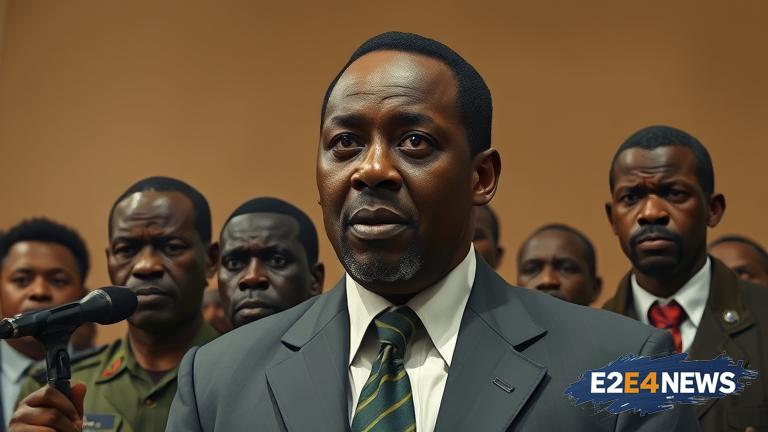The M23 rebel group, a prominent militia operating in the eastern regions of the Democratic Republic of Congo, has recently issued a statement defending former President Joseph Kabila. This move comes as Kabila faces a trial in Kinshasa, the capital city of the DRC, on various charges. The M23 group has been active in the region for several years, often clashing with government forces and other militia groups. In their statement, the M23 expressed their support for Kabila, citing his past efforts to bring stability to the region. They also criticized the current government for what they perceive as a lack of progress in addressing the country’s ongoing security and economic challenges. The trial of Kabila has been widely followed in the DRC and internationally, with many seeing it as a test of the country’s commitment to justice and accountability. Kabila, who served as president from 2001 to 2019, has been accused of a range of offenses, including corruption and human rights abuses. The M23’s defense of Kabila has been seen as a surprise by some, given the group’s past conflicts with government forces during his presidency. However, the group has stated that they believe Kabila is being unfairly targeted and that the trial is politically motivated. The situation in the DRC remains complex and volatile, with multiple militia groups operating in the eastern regions and ongoing tensions between the government and various opposition groups. The international community has called for calm and for the trial to be conducted in a fair and transparent manner. The DRC has a long history of political instability and conflict, with many citizens hoping that the current trial will mark a turning point towards greater stability and accountability. The M23’s statement has been seen as an attempt to influence the outcome of the trial and to shape public opinion. However, it remains to be seen how their intervention will be received by the government and the wider public. The trial is ongoing, with a verdict expected in the coming weeks. The outcome is likely to have significant implications for the future of the DRC and the region as a whole. The international community is watching the situation closely, with many calling for a peaceful and democratic resolution to the crisis. The DRC is a country with significant natural resources and economic potential, but it has been held back by years of conflict and instability. The current trial and the M23’s intervention are just the latest developments in a long and complex story. As the situation continues to unfold, it is clear that the future of the DRC and the region will depend on the ability of the government and opposition groups to find a peaceful and sustainable solution. The M23’s defense of Kabila has added a new layer of complexity to the situation, and it remains to be seen how this will play out in the coming weeks and months. The people of the DRC deserve a peaceful and stable future, and it is the responsibility of all parties involved to work towards this goal. The trial of Kabila is an important step towards accountability and justice, but it is only one part of a larger process of reconciliation and rebuilding. The international community must continue to support the DRC as it navigates this challenging period, and to encourage all parties to work towards a peaceful and democratic resolution. The M23’s statement has highlighted the need for a comprehensive and inclusive approach to addressing the country’s challenges, and for a commitment to justice and accountability from all parties. As the situation in the DRC continues to evolve, it is clear that the road ahead will be long and difficult, but with the support of the international community and the commitment of all parties to a peaceful and democratic solution, there is hope for a brighter future.
